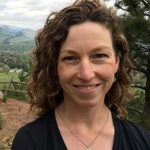Course Transformation Work
Intro to Developing Environmental Solutions, ENVS 1001: Introduction to Developing Environmental Solutions (ENVS 1001) is the second part of the core introductory series for an Environmental Studies undergraduate major.
This is a new course, designed around process-based learning goals to provide students with a quantitative skillset for their use as they move forward in and beyond an environmental studies major. Newer pedagogical techniques were incorporated into this course (e.g. active learning, flipped methods) and introduced content in four modules to provide context for quantitative skill development.
Assessing student learning was conducted via two-stage exams, faculty evaluations, and reading assessments. Course materials are shared with instructor via cloud software with annotations regarding learning goals, effective materials and activities, and student performance and difficulties.
As the course was implemented, some in-class exercises were not as successful as others in 2017. The course was revised for 2018 and scaled from approximately 50 students to approximately 150 and pre- and post-course assessments were developed.
Faculty and Student Development Programs
Assett: The ASSETT Faculty Fellows community provided input during the development of ENVS 1001. Andy Martin provided support in advising content development and teaching approaches. Advice was obtained from OIT members regarding digital classrooms tools and techniques to document course materials. After piloting of the course, the Intro Series Committee mapped the learning goals of this course and its prerequisite; involving all faculty and some of the TAs involved in teaching this course (Jason Neff, Atreyee Bhattacharya, Maxwell Boycoff, Sharon Collinge, Marianne Holbert, Joel Singley, and Victoria Stout). In Spring 2018, the Faculty Learning Community (Amanda Carrico, David Ciplet, Lisa Dilling, Carrie Vodehnal, and Eve-Lyn Hinckley) was assembled to evaluate all components of the undergraduate ENVS curriculum.
Experts
 Eve-Lyn Hinckley’s academic interests focus on quantifying how interactions among biogeochemical, hydrological, and ecological processes affect nutrient cycling at multiple scales. She explores these interactions in a range of settings—including those where human influence is remote and where it is immediate. Eve’s foundation in conducting process-based studies at plot-to-regional scales has informed her more recent involvement in ollaborative efforts to design and use network resources for addressing questions at broad scales. In all of her research endeavors, Eve enjoys collaborating with colleagues and practitioners who bring different perspectives to the research and are interested in working together to incorporate new scientific results into land management decisions. She can be contacted via email at eve.hinckley@colorado.edu
Eve-Lyn Hinckley’s academic interests focus on quantifying how interactions among biogeochemical, hydrological, and ecological processes affect nutrient cycling at multiple scales. She explores these interactions in a range of settings—including those where human influence is remote and where it is immediate. Eve’s foundation in conducting process-based studies at plot-to-regional scales has informed her more recent involvement in ollaborative efforts to design and use network resources for addressing questions at broad scales. In all of her research endeavors, Eve enjoys collaborating with colleagues and practitioners who bring different perspectives to the research and are interested in working together to incorporate new scientific results into land management decisions. She can be contacted via email at eve.hinckley@colorado.edu
